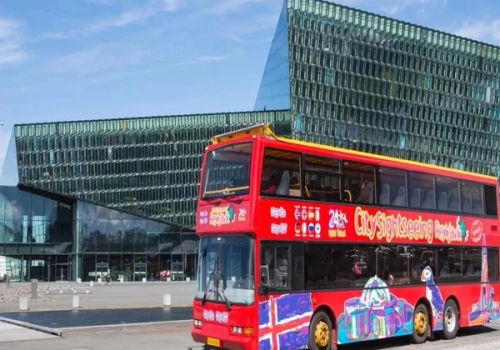The best time to visit Reykjavik is from June to August. Not only will you get to relish the relatively warm temperatures of Iceland, but you'll also get to enjoy the extended daylight hours (up to 21 hours of sunlight), known as the "midnight sun" phenomenon.
If you're on a budget, visiting during winter might be a good idea, as you can save on Icelandic króna. However, if you're someone who struggles with seasonal affective disorder, it's worth noting that the sun only shines for four to five hours between December and February.
If you're planning a trip to Reykjavik, it's important to choose the right time to visit. One of the best times to explore the city and its surroundings is during the summer months of June to August, when you can enjoy mild temperatures and up to 21 hours of daylight per day. It's the perfect time to hop on hop off Reykjavik tours and explore the city's landmarks, such as the Hallgrímskirkja church, the Harpa concert hall, and the iconic Sun Voyager sculpture.
But if you're on a budget, you may want to consider visiting Reykjavik during the winter months of September to May, when prices for hotels and tours drop significantly. However, keep in mind that the winter season comes with shorter days and colder temperatures, so be sure to pack appropriately and be prepared for the long, dark nights.
Key Events to Attend
If you're planning your trip around some of the city's most popular events, there are several festivals worth checking out. These include the Secret Solstice music festival in June, the Reykjavik Jazz Festival in August, the Winter Lights Festival in February, and the Reykjavik Arts Festival in May.
Whether you visit Reykjavik during the summer or winter months, there's always something to see and do. And with Hop-On Hop-Off Reykjavik tours, you can easily explore the city and discover its unique culture and attractions.
Best Time for Whale Watching in Reykjavik
City Sightseeing Reykjavik is incomplete without spotting the magnificent creatures of the sea. According to marine biologist Dr. Edda Elísabet Magnúsdóttir, the best time to spot whales in Iceland is during June and July, especially for humpbacks, minkes, and dolphins.
In northern Iceland, you can enjoy whale sightings from May to August, and some humpbacks stick around until the end of the year. Blue whales also pass through in the summer. Orca sightings are common in West Iceland along the Snaefellsnes peninsula during the first half of the year.
Best Time to Visit the Hot Springs
In Iceland, hot water baths are deeply ingrained in the local culture and offer both social and wellness benefits. Reykjavik's public pools are open year-round, and the island boasts countless secluded hot pots that utilize the geothermal energy beneath its lava-covered surface.
Sigurdur Bjarni Sveinsson, an Icelandic mountaineer and co-founder of Midgard Adventure, suggests that the ideal time to experience these hot water baths is in September or the first half of October. During this period, the baths are still accessible via mountain roads, and there are fewer tourists around.
For travelers who want to visit the Blue Lagoon, the most famous geothermal spa, it's best to plan your trip during off-season or shoulder season to avoid crowds. The City Sightseeing Reykjavik trip is incomplete without experiencing the healing and relaxing properties of the hot springs.
Best Time for Viewing Northern Lights
Iceland is known for the aurora borealis, but viewing the phenomenon depends on three essential factors: darkness, clear conditions, and a surge in solar activity. While the viewings are often elusive, visiting Iceland from mid-October through March increases the chances of seeing the northern lights. The countryside reduces ambient light pollution, making it easier to spot the aurora borealis. Travelers should avoid planning their trip solely for the northern lights, given Iceland's unpredictable weather.

